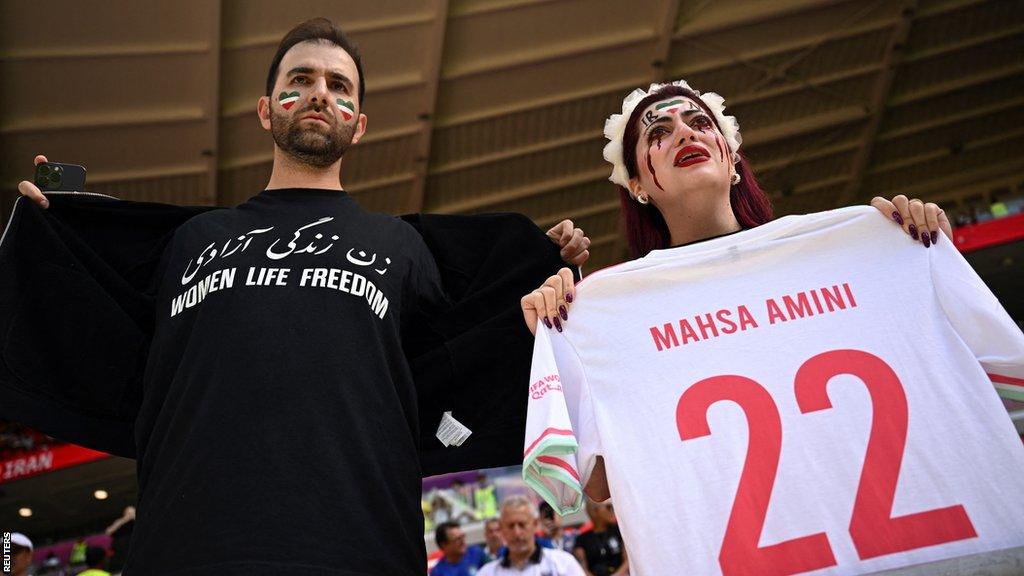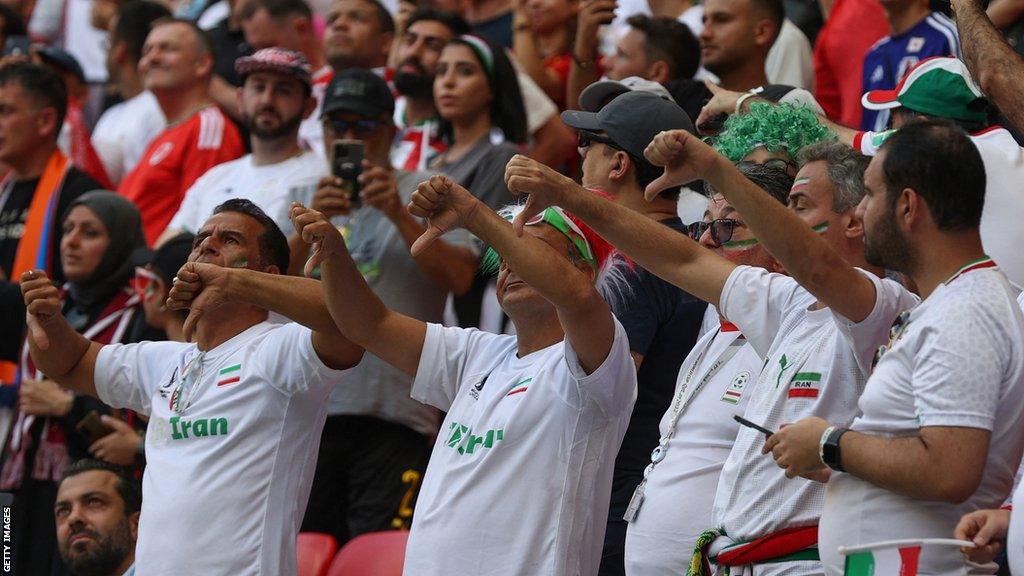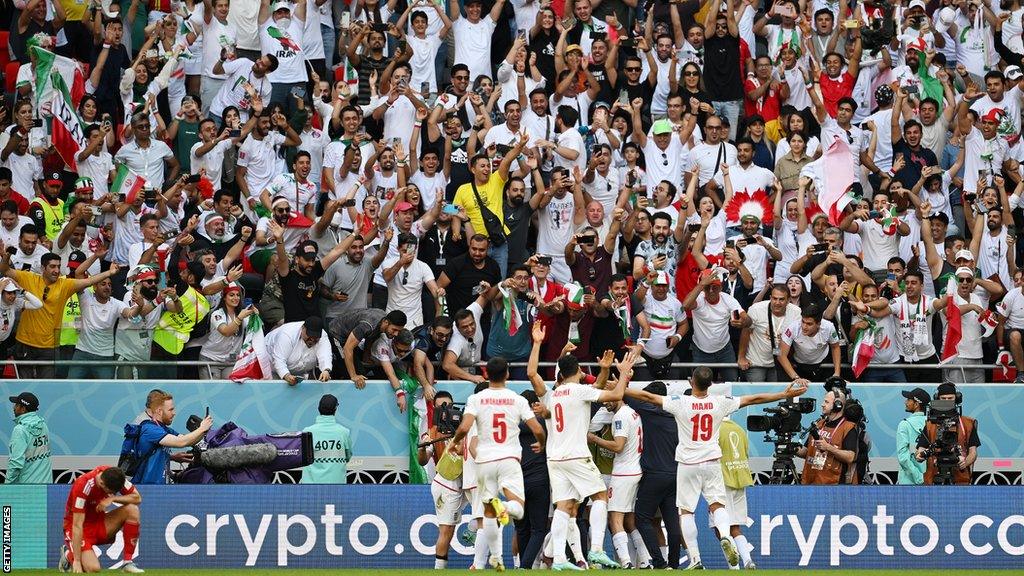World Cup 2022: Iran players sing national anthem before Wales game
- Published
World Cup 2022: Iran players sing national anthem before Wales game after
Fifa World Cup |
|---|
Host nation: Qatar Dates: 20 November-18 December Coverage: Live on BBC TV, BBC iPlayer, BBC Radio 5 Live, BBC Radio Wales, BBC Radio Cymru, BBC Sounds and the BBC Sport website and app. Day-by-day TV listings - Full coverage details |
Iran's players sang their national anthem before Friday's World Cup game against Wales after not doing so before their opener against England.
They had stayed silent at Khalifa International Stadium on Monday in an apparent expression of support for anti-government protests in Iran.
As the players joined in with the anthem on Friday, loud jeers could be heard from Iran fans in the stadium.
Mass protests in Iran in recent months have been met with a fierce crackdown.
They have been sparked by the death in custody in September of Mahsa Amini, a 22-year-old woman who was detained by morality police for allegedly breaking the strict rules around head coverings.
A woman in the crowd against Wales had dark red tears painted under her eyes and held a football jersey with "Mahsa Amini - 22" printed on it, while a man standing next to her has the slogan 'women, life, freedom' on his top.

Iran fans showing solidarity with protesters in their home country

Some supporters of Iran react to their national anthem during the game against Wales

Iran beat Wales 2-0 as they maintained their hopes of reaching the knockout stages

Analysis
Shaimaa Khalil, BBC News in Doha, Qatar
Outside the stadium, Ali - who didn't want to use his real name - spoke to me wearing a T-shirt with the protest slogan "women, life, freedom" written on it in Persian. He had travelled from Tehran to Doha to watch his national team.
"Every day we go to protest, but the regime is bigger and they have more power, they have guns. We are with bare hands," he said.
Ali told me the protesters have hope but are "frightened" and feeling "alone", and added that they needed support from the rest of the world.
The national team has come under a great deal of pressure and been criticised for not doing enough to support the protesters. Ali said that, while he wants them to do well, he finds it "very difficult" to support the team or focus on the football. He said: "When [I] see my brothers and sisters on the streets in blood, how can I focus? How can I be happy?"
Earlier in the week, Iran captain Ehsan Hajsafi acknowledged that the situation in the country was "very bad" and that people were "not happy". He also paid tribute to those who have died.
But on Thursday, during their pre game news conference, Mehdi Taremi refused to engage with any questions about the situation in his country.
Iran's players are in a difficult position. They're on the world's biggest stage, representing a country in deep political turmoil where anti-government protesters have been killed and arrested. They're being asked to have a stronger stance in support of the protesters, but anything they say or do will likely have repercussions back home.
All the while, the players have the crucial job of performing well, with the hope of delivering a victory on the football pitch.

Human rights activists have said more than 400 protesters have been killed and 16,800 others arrested in a crackdown by Iran's security forces.
Iran's leaders say the protests are "riots" orchestrated by the country's foreign enemies.
Before Friday's game, Iran striker Mehdi Taremi said the players were "not under any pressure" after not singing the anthem against England.
"The fact is that we have come here to play football - not only us, but all the players who are present in Qatar have come here to play football," he added.
"I cannot change anything; thousands of other people like me cannot change anything."
Iran manager Carlos Queiroz, who is from Portugal, was sitting next to Taremi at the news conference and said: "It's your right to do those questions, but what what I feel strange, as a normal citizen of the world, is you don't ask the same kind of questions to the other coaches and other national teams, knowing that they have so many problems at home, and cause so many problems all over the world."
Watch: Iran football manager Carlos Queiroz confronts BBC correspondent Shaimaa Khalil

Get the latest results and goal notifications for any team at the Fifa World Cup by downloading the BBC Sport app: Apple, external - Android, external - Amazon, external


Get your daily dose of Fifa World Cup reaction, debate & analysis with World Cup Daily on BBC Sounds
